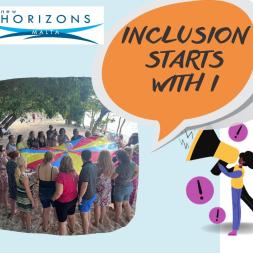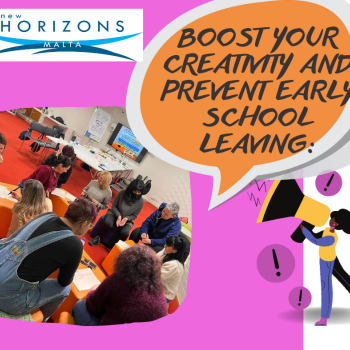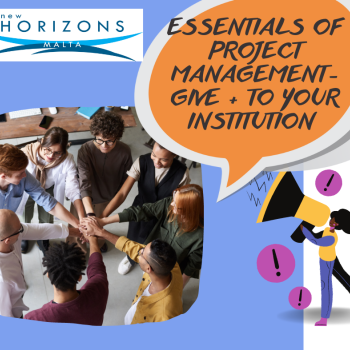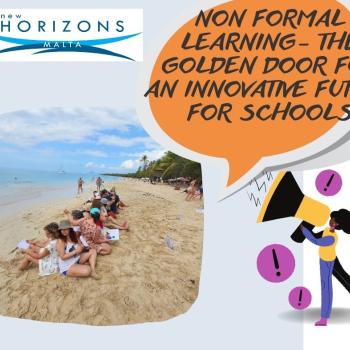
Inclusion starts with I – Learning to live together
The aim of the training course is to empower teachers with strategies, skills and knowledge about social inclusion and how to build an inclusive school.
8 training days format but at your request, the course can be structured for a shorter format of 7,6, or 5 days
REGISTER HERE https://docs.google.com/forms/d/e/1FAIpQLScJS3bLovsAG8zOx95UvWluNjfFAoSKIE2D44J4XzaZaN8BwA/viewform
Description
The course focuses to the need for professionals with the capacity to respond to the increasing cultural, linguistic and developmental diversity of school communities and describes the principles of inclusion and their application in educational settings.It follows the need for professionals with the capacity to respond to the increasing cultural, linguistic and developmental diversity of school communities and describes the principles of inclusion and their application in educational settings
Day 1 Intercultural issues. Connection between culture and inclusion. How to communicate in order to create a positive climate in the classroom. Introduction to Inclusion. A clear, basic understanding of exclusion and inclusion. Principles , aims & objectives of IE
Day 2 IE : The research-basis for IE . Need and importance. Reforms in curriculum .A case studies of inclusive practices in schools and classes. Exchange practices and experiences on various aspects and perceptions of marginalization and inclusion. Storytelling and no formal education tools
Day3 The Value of IE : The importance of IE ; The basic elements of IE ; The support of IE ; Social theater and improvisation as educational tools; study visit
Day 4 Different ways in which IE al practices build a school's capacity to educate all learners effectively: Respect for diversity.
Day 5 Strategies to improve IE . Variety of instructional formats and various methods to support learners’ needs.
Day 6 Strategies to involve in school activities students in risk of exclusion. Activities based on a very good overview and practical experience of tools through individual work, working groups and collective work regarding social inclusion.
Day 7 Conflict in classroom. Management styles of conflict. Mediation and negotiation tools in the fight against exclusion of people with fewer opportunities.
Day 8 Human rights regarding social inclusion in school- impact
Planning the follow up: future projects together. Evaluation
Learning objectives
Training modules: Intercultural Issues, Introduction to Inclusion, Inclusive Education, Strategies to Improve Inclusive Education, Techniques to Support Social Inclusion; Non formal education vs Formal Education, Motivation, Non formal for inclusion, EU Competences, Outdoor Education; Conflict handling styles; Team building; Networking and dissemination.
By the end of the course, each participant should be able to:
-to solve inclusion issues in multicultural classes
-to have a clear understanding of exclusion and inclusion.
-to develop and appropriately apply knowledge, skills and attitudes relevant to inclusive education and the contexts in which it takes place
-to increase chances to get involved in order to avoid inclusion
-to develop new specific competences regarding social inclusion
-to raise motivation and interest work with disadvantaged students
-to learn new social inclusion tools and methods of work in order to educate all learners effectively
-to learn new non-formal education activities and techniques in order to better integrate of all students in the classroom
-to reflect critically on the relationships between theory and practice and explore issues in the implementation of educational and social principles and ideals.
- to find strategies based on a very good overview and practical experience of tools through individual work, working groups and collective work regarding social inclusion
- to use new mediation and negotiation tools in the fight against exclusion of people with fewer opportunities
-to exchange practices and experiences on various aspects and perceptions of marginalization and inclusion
All our courses includes at least one VISIT TO LOCAL SCHOOL and the opportunity to interact with LOCAL TEACHERS
Methodology & assessment
Certification details
At the end of the course, each participant will be awarded with the Europass Mobility Certificate, together with a descriptive certificate of attendance ( on the certificate will be specified the title of the course, name of the participant project, national reference number, numbers of hours, course dates and location). after participants enrollment, we provide also the learning agreement and the interinstitutional agreement.
PREPARATION AND FOLLOW UP
BEFORE:Every participant will have to fill a questionnaire which helps the trainers to customize the course to better fit their needs. Attendants will get instructions and material which will help them to be prepared for the courses needs.
AFTER: The participants will get material which includes information about all the areas covered at the course, lesson plans , all the produced outcomes of the course, useful links and more.
ON THE LAST DAY OF THE COURSE THE PARTICIPANTS WILL HAVE THE OPPORTUNITY TO CREATE A DRAFT OF FUTURE ERAMUS SMALL SCALE PROJECT AND DESIGN SUPPORT WILL BE GIVEN
Additional information
-
Language:English
-
Target audience ISCED:Primary education (ISCED 1)Lower secondary education (ISCED 2)Upper secondary education (ISCED 3)
-
Target audience type:TeacherHead Teacher / PrincipalNot-for-profit / NGO staff
-
Learning time:25 hours or more
Past sessions
More courses by this organiser

BOOST YOUR CREATIVITY AND PREVENT EARLY SCHOOL LEAVING: STEPS FOR INTEGRATION AND INTERCULTURAL EDUCATION

ESSENTIALS OF PROJECT MANAGEMENT- GIVE PLUS TO YOUR INSTITUTION WITH QUALITATIVE STANDARDS OF PMI


